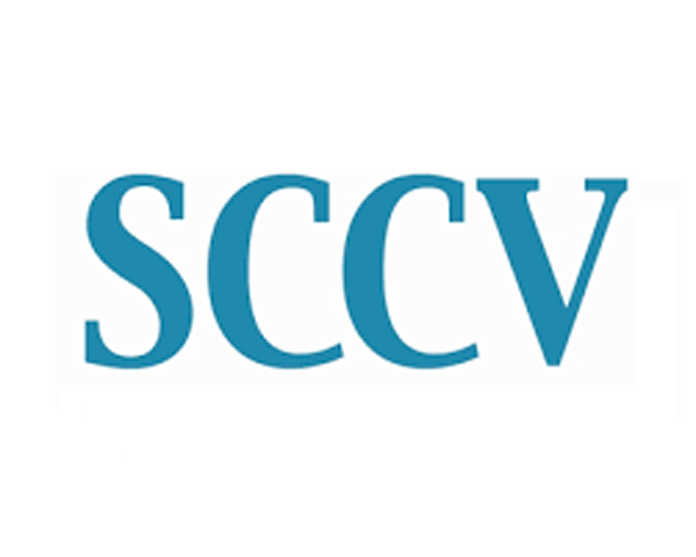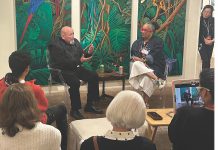WATSONVILLE—Alternative lenders outnumber mainstream lenders by more than 3-1 in Watsonville.
That’s according to a joint report from Santa Cruz Community Ventures (SCCV) and UC Santa Cruz’s Blum Center presented to the public in Watsonville’s Civic Plaza on Tuesday.
The report, called “Mamas con Mas,” identified 17 mainstream lenders (banks and credit unions) to 54 alternative lenders (subprime mortgages, rent-to-own services, pawnshops, remittance services, payday loans and car title loans), which the report called “predatory.”
“They are regarded as ‘predatory’ because of their disregard for borrowers’ capacity to repay loans, exorbitant fees and high-interest rates,” according to the report.
The report surveyed 108 Latina mothers in Santa Cruz County. Eighty of them lived in Watsonville, 16 of them in Santa Cruz and 12 of them in Aptos. The women, most of whom were married with children, participated in 11 free-flowing listening circles about their experiences with both types of lending services.
The women surveyed rejected the idea that they were lacking money management skills or financial literacy, according to the report.
Instead, the women said insufficient income in the pricy Santa Cruz County was the root of their problem, and one of the main reasons why some have decided to use alternative lenders to cover rent, build credit or pay for surprise medical expenses in the past.
“It’s really impossible to separate these experiences from the broader conditions of the women that we spoke with,” said Heather Bullock of UCSC’s Blum Center. “I do want to highlight that the underlying issue here is poverty and pervasive financial instability.”
Another report from 2018 conducted by Prosperity Now found that nearly half of Watsonville residents either did not have a bank account—savings or checking—or often relied on alternative lenders to manage their finances.
The report presented Tuesday found five top barriers to accessing financial services from banks and credit unions: (1) punitive fees, unclear policies and poor communication, (2) institutional distrusts, (3) limited culture competence and policies to support immigrant populations, (4) bias based on race and low-income status and (5) asset limits for assistance programs.
Many participants said they have turned to friends, family and community programs for loans or financial advice such as identifying problem lenders and various strategies to pay off loans, according to the report.
The report also made a half-dozen recommendations to help curtail the growth of alternative lenders, including a moratorium on new lenders until Watsonville can study their impacts on the community.
It also suggested cultural competency training and inclusive banking policies that would make mainstream lenders more accessible for immigrant communities.
Additionally, the report called for the removal of asset limits and universal acceptance for Individual Tax Identifying Numbers, the tax processing number used by nonresidents, their spouses and their dependents who cannot get a Social Security Number.
SCCV Director Maria Cadenas said she hopes Watsonville’s alternative lenders will be part of the conversations that will create a healthier relationship with the city’s residents.
“The thing I don’t want to do is point fingers,” Cadenas said. “I’m sure the way they see it, they’re providing a service for people.”
Watsonville City Manager Matt Huffaker introduced Bullock and Cadenas on Tuesday, and told this publication on Wednesday that the study helped “shine a light on the high concentration of underbanked and unbanked families in Watsonville, and the barriers to accessing traditional financial services.”









